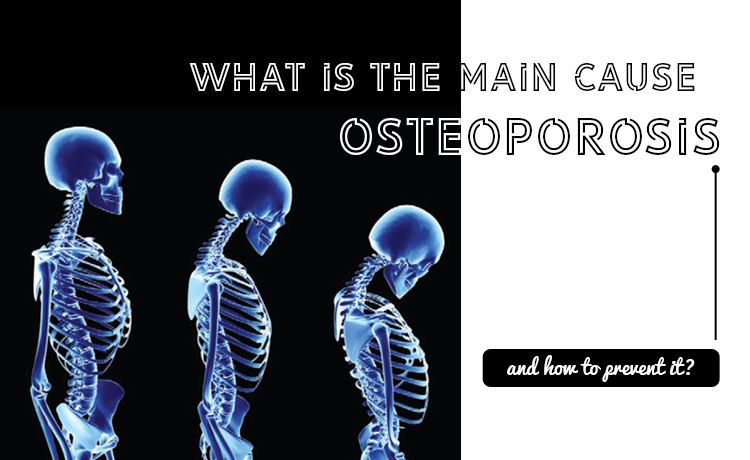Remember the last time you hit your leg against a stone you didn’t notice on time? Or the time you crashed into the dinner table before you checked your run. For most of us, the only consequences we come off with are “ouch” and a sensation of temporary discomfort, in addition to wondering why we didn’t see the offending object on time. However, this is not the same for everybody. In people who have osteoporosis, regular events like those mentioned above have more severe effects. Bone fracture and breaks can occur even when the bone is subjected to little stress in this condition. Osteoporosis is a debilitating condition that can place severe constraints on the quality of life.
But What Causes Osteoporosis?
Bone Is A Living Tissue
To answer this question, it is essential to know a few things about the bone. First of all, bone is a living tissue in living beings. The popular phrase “as dead as a bone” doesn’t apply here. Now, as with all living tissue, parts of bones are continually being broken down and, more importantly, regenerated. Calcium and other minerals are also locked in to give strength to the bone. In osteoporosis, the rate of bone degradation far outstrips that of regeneration. In osteoporosis, bone regeneration can’t keep up pace with that degradation. As a result, far more bone tissue and minerals are broken down or leached than are regenerated or reabsorbed. You get the picture–Over time, a significant deficit occurs, and bone becomes very brittle and weak, which can happen in:
Poor Diet And Other Deficiency States
Deficiency states such as occur in inadequate calcium intake, poor diets, and diseases that hinder absorption. An important thing to note here is that a deficiency of vitamin D, which is essential in the absorption of calcium by the body, can predispose one to osteoporosis due to calcium being leached from the bone to make up for low blood levels of the mineral. Also, when diseases such as hyperparathyroidism occur that cause massive amounts of calcium and phosphate to be leached from the bones, they can result in bones becoming very weak and brittle. Increasing age, which causes a reduction in hormonal levels, especially testosterone and estrogen, may also cause osteoporosis.
What Can Be Done To Prevent It
When looking to prevent osteoporosis, we must note the possible risk factors and work towards avoiding them. We can’t help getting old, but we can take possible steps that mitigate some of the osteoporosis-inducing effects of aging. Here’s a list of little steps that will go a long way towards preventing osteoporosis if taken consistently.
Improve Your Diet
Deficiency states are implicated in osteoporosis. Improving your diet to contain relevant nutrients goes a long way to help. You can also use supplements to make up for possible nutritional deficiencies. A supplement I would recommend in that aspect is the Shiruto vitamin supplement, which contains multiple vitamins that help nutrient absorption and utilization.
Exercise
Exercising well helps to build up bone and make it more resilient. It follows a use-it-or-lose-it principle just like muscles, so the more you exercise, the better protected you are against weak bones.
Treat Underlying Disease
If you suffer from a disease such as hyperparathyroidism, coeliac disorders, etc., that may lead to osteoporosis. You should discuss treatment options with your doctor to help you manage them properly.








